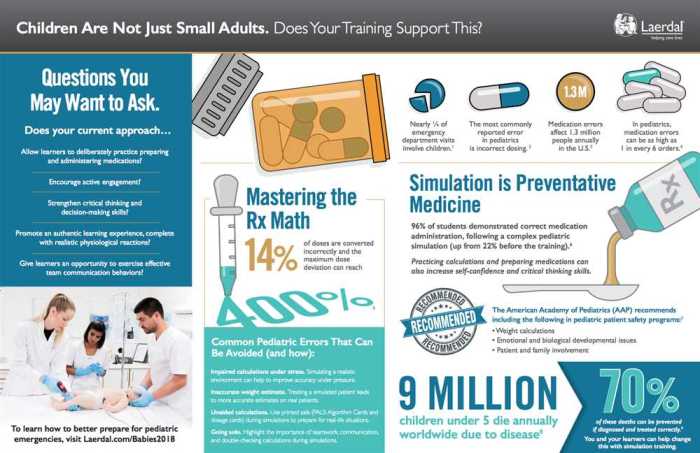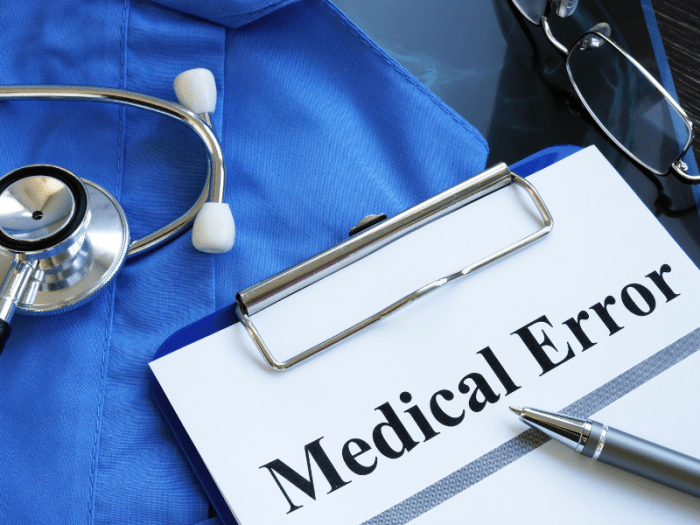Prevention of medical errors echelon answers: Exploring the vital role of Echelon Answers in safeguarding patient safety and minimizing medical errors in healthcare settings. This discussion delves into the significance of preventing medical errors, the various types and consequences, and the innovative solutions offered by Echelon Answers to mitigate risks and improve patient outcomes.
Medical errors pose a significant challenge in healthcare, potentially leading to adverse events and compromising patient well-being. Understanding the causes and implementing effective prevention strategies are paramount to ensuring patient safety and maintaining the integrity of healthcare delivery.
Prevention of Medical Errors
Medical errors are a serious problem in healthcare, causing harm to patients and costing the healthcare system billions of dollars each year. Preventing medical errors is essential to improving patient safety and reducing healthcare costs.
There are many different types of medical errors, including medication errors, surgical errors, and diagnostic errors. Medication errors are the most common type of medical error, and they can occur when a patient is given the wrong medication, the wrong dose of medication, or the medication is given at the wrong time.
Surgical errors can occur when a surgeon makes a mistake during an operation. Diagnostic errors can occur when a doctor makes a mistake in diagnosing a patient’s condition.
Medical errors can have serious consequences for patients. They can lead to death, disability, or other serious health problems. Medical errors can also cause patients to lose trust in the healthcare system.
There are many things that can be done to prevent medical errors. These include:
- Improving communication between healthcare providers
- Using technology to identify and mitigate risks
- Providing training to healthcare providers on how to prevent medical errors
- Creating a culture of safety in healthcare organizations
By taking these steps, we can help to prevent medical errors and improve patient safety.
Echelon Answers: Prevention Of Medical Errors Echelon Answers

Echelon Answers is a company that provides technology-based solutions to help healthcare organizations prevent medical errors.
Echelon Answers’ software uses artificial intelligence to identify and mitigate risks in the healthcare setting. The software can be used to identify potential medication errors, surgical errors, and diagnostic errors.
Echelon Answers’ software has been shown to be effective in reducing medical errors. In one study, the software was found to reduce medication errors by 50%. In another study, the software was found to reduce surgical errors by 25%.
Echelon Answers is a valuable tool for healthcare organizations that are committed to preventing medical errors and improving patient safety.
Best Practices for Preventing Medical Errors

| Practice | Description | Benefits |
|---|---|---|
| Improve communication between healthcare providers | Use clear and concise language when communicating with patients and other healthcare providers. Repeat important information back to the person you are speaking with to ensure understanding. | Reduces the risk of misunderstandings and errors. |
| Use technology to identify and mitigate risks | Implement electronic health records (EHRs) and other technology tools to help identify and mitigate risks. | Automates tasks, reduces the risk of human error, and provides real-time alerts. |
| Provide training to healthcare providers on how to prevent medical errors | Provide regular training to healthcare providers on how to prevent medical errors. | Improves knowledge and skills, and reinforces best practices. |
| Create a culture of safety in healthcare organizations | Encourage a culture of safety in which healthcare providers feel comfortable reporting errors and near misses. | Promotes transparency and learning from mistakes. |
Role of Healthcare Professionals in Preventing Medical Errors
Healthcare professionals play a vital role in preventing medical errors. They can do this by:
- Following best practices for preventing medical errors
- Being aware of their own limitations and seeking help when needed
- Communicating effectively with patients and other healthcare providers
- Reporting errors and near misses
- Participating in quality improvement initiatives
By taking these steps, healthcare professionals can help to create a safer healthcare system for patients.
Technology and Innovation in Medical Error Prevention

Technology and innovation play a vital role in preventing medical errors. Electronic health records (EHRs) can help to improve communication between healthcare providers and reduce the risk of medication errors. Decision support systems can help to identify potential risks and provide guidance to healthcare providers.
Other technologies, such as barcoding and RFID tags, can help to track medications and equipment and reduce the risk of errors. Telemedicine can help to improve access to care and reduce the risk of errors that can occur when patients are seen in person.
Technology and innovation are essential tools in the fight against medical errors. By continuing to develop and implement new technologies, we can help to make healthcare safer for patients.
Query Resolution
What is the significance of preventing medical errors?
Preventing medical errors is crucial for patient safety and well-being. Errors can lead to adverse events, harm, and even death. By implementing effective prevention strategies, healthcare organizations can protect patients from unnecessary risks and improve overall healthcare outcomes.
How does Echelon Answers contribute to medical error prevention?
Echelon Answers utilizes advanced technology to identify potential risks in real-time. The system analyzes patient data, medical orders, and other relevant information to detect anomalies and alert healthcare professionals to potential errors. This proactive approach enables timely intervention and error mitigation, safeguarding patient safety.
What are some best practices for preventing medical errors in healthcare settings?
Best practices for medical error prevention include implementing clear communication protocols, promoting teamwork and collaboration among healthcare professionals, establishing standardized processes, utilizing technology to support decision-making, and fostering a culture of continuous learning and improvement.